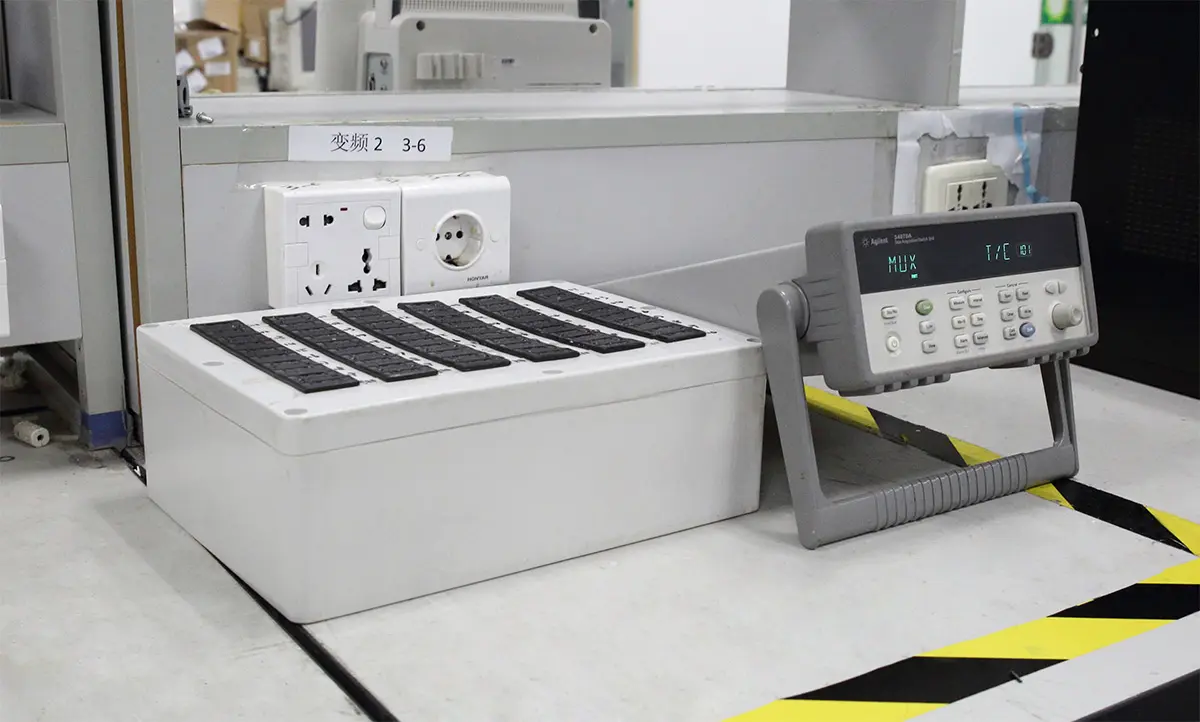
Introduction to Malaysia ST COA Certification
In accordance with the requirements of the Malaysian Electricity RegULations 1994 (Section 97), all electronic devices sold in Malaysia must be approved by the Energy Commission of Malaysia (Suruhanjaya Tenaga, abbreviated as ST) to be legally sold.
The Energy Commission of Malaysia fulfills the regulatory requirement by issuing a COA certificate (Certificate of Approval) to manufacturers, importers, sellers, or advertisers of electronic devices. This process is known in the industry as ST COA certification.

ST has published a list of regulated electrical equipment, and as of May 1, 2022, there are 34 categories of products that require ST COA certification.
The details are as follows:
(Refrigerators, air conditioners, fans, TVs, and lighting fixtures have MEPS requirements)
No. Electrical Equipment Category
1 Power plugs (15A and below)
2 Switches and dimmers
3 Sockets (15A and below)
4 Fluorescent lamp holders
5 Ceiling lamp junction boxes/line boxes
6 Bayonet lamp holders and multi-head adapters
7 Luminaires, starters
8 Capacitors for fluorescent lamps
9 Ballasts/driver for lighting fixtures
10 Circuit breakers
11 Portable lamps, desk lamps
12 Electric kettles
13 Blenders
14 Toasters/ovens
15 Rice cookers
16 Refrigerators
17 Immersion heaters
18 Instantaneous water heaters
19 Washing machines
20 Electric fans
21 Hairdryers
22 Ironing irons
23 Electric shavers
24 Steam cleaners
25 Vacuum cleaners
26 Hi-Fi high fidelity equipment
27 Monitors/televisions
28 Audio equipment and video players
29 Massagers
30 Air conditioners (up to 4HP)
31 Christmas lights or Christmas light strings
32 Electric tools
33 Power adapters/chargers
34 Power cables/wires (cross-sectional area 0.5 – 35mm²)
Devices poweRED by USB or internal batteries are exempt from applying for ST COA.
For electrical devices not on the regulated list, a release letter from ST COA is required to facilitate smooth customs clearance.
The ST COA certification can only be applied for by local companies in Malaysia, and the applicant must first register the company with ST.
After registering with ST, the applicant must submit product test reports and technical documents for review. Once the ST review is completed, the ST COA certificate can be obtained.
The test report must be issued within the last five years and should be a cb report or a report from an accredited testing agency. For products with energy efficiency requirements (MEPS), an energy efficiency report must also be submitted.
ST-recognized testing agencies must meet one of the following conditions:
1. SIRIM Berhad (SIRIM Limited).
2. Laboratories under the iecee cb scheme.
3. Laboratories with Asia Pacific Laboratory Accreditation Cooperation (APLAC) certification.
4. Laboratories with International Laboratory Accreditation Cooperation (ILAC) certification.
5. Laboratories with ASEAN Electrical and Electronic Equipment Industry Mutual Recognition Agreement (ASEAN EEE MRA) Designated Testing Laboratory (DTL) qualification.
Among these, SIRIM Berhad is the locally appointed testing agency by ST.
There are two processes for testing samples sent to SIRIM Berhad: consignment test or Product Certification Scheme (SIRIM PCS).
Consignment test does not require a factory audit, and only the product itself is tested. The Product Certification Scheme (PCS) requires a factory audit.
The process for joining SIRIM PCS is as follows:
1. Submit application.
2. Document evaluation and acceptance.
3. Factory audit.
4. Sample sampling and testing.
5. Approval and issuance of certificate.
6. Market surveillance.
The validity of the ST COA certificate is one year.
Violations of the Electricity Regulations 1994 are considered criminal offenses and will be subject to a fine of up to 5000 Malaysian Ringgit (approximately 7800 RMB) and a one-year imprisonment sentence.
Labeling Requirements
Section 98 of the Electricity Regulations 1994 requires that equipment certified by ST COA must be labeled according to ST's requirements.
ST requires that regulated equipment must display the SIRIM ST label on the device. The applicant must purchase the SIRIM ST label from SIRIM Berhad or use a molding process to affix it to the device.
All SIRIM ST labels purchased from SIRIM Berhad have a unique serial number to prevent counterfeit products.
There are two types of SIRIM ST labels. Applicants who obtain ST COA certification through the SIRIM PCS process can purchase the SIRIM ST label. Applicants who obtain ST COA certification through other methods can only purchase the SIRIM ST batch label (BATCH).
The BATCH label requires a separate application for each batch of goods shipped.
The molding process for applying the SIRIM ST label to the device is shown below, and the label must include the applicant's name, certification number, and the phrase "SIRIM-ST Label Licensing Programme."
Only ST COA certifications obtained through the SIRIM PCS process can use the molding process to apply the label.
Refrigerators, air conditioners, fans, televisions, and lighting fixtures also need to affix the ST energy efficiency label on the product.
Points to Note
ST has minimum energy efficiency (MEPS) requirements, and products subject to MEPS regulation must meet the MEPS requirements.
The SIRIM ST label must be affixed to the device label and cannot be affixed to the product packaging.
Email:hello@jjrlab.com
Write your message here and send it to us
 Canada Wireless Device IC Certification RSS-210 Te
Canada Wireless Device IC Certification RSS-210 Te
 FCC Part 15.231 for Wireless Remote Controls and S
FCC Part 15.231 for Wireless Remote Controls and S
 Is SAA Certification Required for Lamps Sold to Au
Is SAA Certification Required for Lamps Sold to Au
 Tablet PC RSS-247 Test Report
Tablet PC RSS-247 Test Report
 Canada ISED Certification RSS-247 Standard Testing
Canada ISED Certification RSS-247 Standard Testing
 What Are the Product Compliance for Amazon Austral
What Are the Product Compliance for Amazon Austral
 Australia IoT Security Compliance
Australia IoT Security Compliance
 V16 Warning Light EU EN 18031 Cybersecurity Certif
V16 Warning Light EU EN 18031 Cybersecurity Certif
Leave us a message
24-hour online customer service at any time to respond, so that you worry!




